
Kyushu University is promoting the "4+2+4 Action Plan" in pursuit of creating a Center of Excellence (COE) at the world's highest level. The first "4" of "4+2+4" represents our missions: education, research, contributions to society, and contributions to international society. "2" represents our future directions: "Reaching towards new science fields based on our past accomplishments" and "Oriented toward Asia, naturally fostered by history and geography." The last "4" implies the support in which the university provides based on performance evaluation: budget allocation, human resources measures, improvement of facilities and spaces, and increasing time for education and research.
1) "Research Superstar Support Program" given under President's initiative
As a specific plan of the last "4," more budget will be allocated under President's initiative to faculty members who have accomplished excellent research results and are highly reactive (Research Superstar Support Program). By allocating this "budget" to hiring research assistants or part-time instructors, the "human resources measures" are to be satisfied, and in turn, the added staff members will help the researcher "increase time for research." This new program was launched, with the hope that young researchers in particular will become our superstars who will exert leadership at Kyushu University in the future.
Eligible Persons (Faculty)1. 21st Century COE Program Leaders (until project completion)
Yukio Fujiki (Sciences), Seiji Shinkai (Engineering), Mitsuo Maeda (Information Science), Hajime Nawata (Medicine), Mitsuhiro Nakao (Mathematics), Yasunori Matsufuji (Human-Environment), Yukitaka Murakami (Engineering), Yutaka Tochihara (Design)
From FY 2005 (until project completion): 8 million yen(Purpose: Employment of distinguished assistants and part-time instructors)
2. Research Program Leaders (senior researchers) (up to three years)
Toshiyuki Kono (Law), Yoh Iwasa (Sciences), Makoto Hashizume (Medical Sciences), Masahiro Irie (Engineering), Zenji Horita (Engineering), Tetsuya Kusuda (Engineering), Hiroto Yasuura (Information Science and Electrical Engineering), Kiyoshi Toko (Information Science and Electrical Engineering), Hiroyuki Wariishi (Agriculture), Koichi Akashi (Hospital), Sanae Itoh (Reseach Institute for Applied Mechanics)
FY 2004: 5 million yen(Purpose: Employment of distinguished assistants and part-time instructors)
3. Young Research Leaders (junior researchers for developing Superstars) (up to three years)
Teruomi Yamaguchi (Humanities), Masahiko Kaburagi (Social and Cultural Studies), Hiroshi Kitagawa (Sciences), Katsunori Iwasaki (Mathematics), Tatsushi Muta (Medical Sciences), Takashi Kanematsu (Dental Science), Tsutomu Katayama (Pharmaceutical Sciences), Nobuo Kimizuka (Engineering), Tatsumi Ishihara (Engineering), Masahiro Kishida (Engineering), Motoji Yamamoto (Engineering), Takayuki Shimaoka (Engineering), Hideyuki Takagi (Design), Masayuki Takeda (Information Science and Electrical Engineering), Seigi Mizuno (Engineering Sciences), Kazunari Sasaki (Engineering), Hirofumi Tachibana (Agriculture), Keiichi Nakayama (Medical Institute of Bioregulation), Yoshinori Fukui (Medical Institute of Bioregulation), Kiyoshi Takeda (Medical Institute of Bioregulation)
FY 2004: 4.5 million yen(Purpose: Employment of distinguished assistants)
2) Foundation and expansion of five centers under President's initiative
To promote the support for "improvement of facilities and spaces" in particular, five centers were founded and expanded as strategic education research bases in the FY 2005.s
The Center for Future Chemistry
"Functional Innovation in Molecular Informatics," a part of the 21st Century COE Program, led by Prof. Shinkai Seiji of the Graduate School of Engineering, aims at the creation of a novel Molecular Informatics which connects information characteristics of molecules with nanotechnology.
The Center for Future Chemistry, fully utilizing Molecular Informatics, develops translational research, which puts newly developed materials and novel technologies into practical use, together with chemistry research based on nanotechnology, a field with great prospects for industries, which is characterized by information, newly developed materials and optics.
The Center for Future Chemistry, while joining hands with organizations in Fukuoka and Asia, will actively contribute to society through collaborative initiatives between the academic and the industrial worlds, the creation of new industries and the cultivation of human resources.
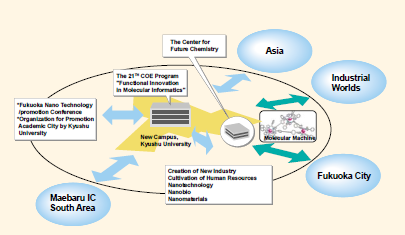 |
| The Center for Future Chemistry |
Bio-Architecture Center
The Bio-Architecture Center was established in April 2005, aiming at the formation of a strategic research foothold in a period for five years. The center comprises 5 divisions to promote a new research field able to design metabolic regulations and networks to produce functional biomaterials, which is named Metabolic Architecture Design System. The activities of the center also aim to construct an effective and productive framework for cooperative research works between industry and academia. The Academic/Industry Exchange Center (tentative title) will be established in the science city which includes Kyushu University's new campus as its core. The Center for Future Chemistry and the City of Fukuoka are now studying concrete methods for close cooperation.
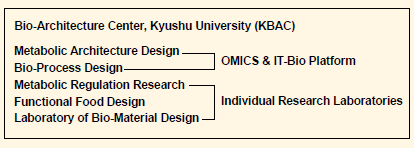
Center of Digital Medicine Initiative
Recent explosions of life science have tremendous impact on clinical medicine. However, mechanisms to incorporate basic knowledges into integrated pathophysiology in patients remain unestablished. To overcome such limitations of latest medical sciences, Kyushu University has founded the Center of Digital Medicine Initiative. The Center of Digital Medicine Initiative is a dedicated institution where we develop computational human models capable of reproducing pathophysiology by incorporating fundamental knowledges in life sciences, and investigate new modalities of treatments and diagnoses.
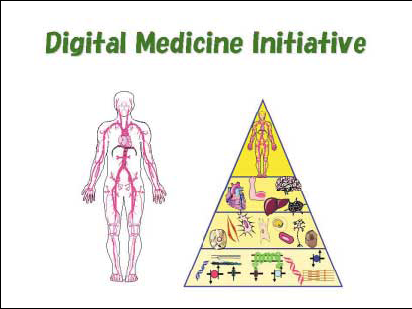
Kyushu University Asian Policy Research Center
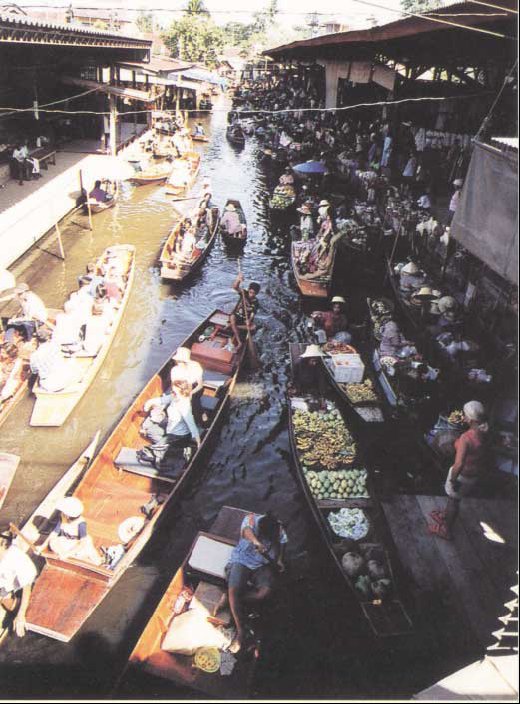 The new center is designed to bring together and fully utilize the established intellectual and human resources of Kyushu University concerning Asia to carry out contemporary social and cultural research, keep abreast of the rapid change in the region and thereby be in a position to offer policy are commendations and solutions to the issues facing contemporary Asian society. The center will cooperate with prominent intellectual, social and political organizations in Japan, Asia and the world. It will strengthen the established perception of Kyushu University's special access to Asia. The new center is a development of the former KUARO and will initially have three research areas:
The new center is designed to bring together and fully utilize the established intellectual and human resources of Kyushu University concerning Asia to carry out contemporary social and cultural research, keep abreast of the rapid change in the region and thereby be in a position to offer policy are commendations and solutions to the issues facing contemporary Asian society. The center will cooperate with prominent intellectual, social and political organizations in Japan, Asia and the world. It will strengthen the established perception of Kyushu University's special access to Asia. The new center is a development of the former KUARO and will initially have three research areas:
-
Contemporary Asian Cultural Research, carrying out vigorous investigation of Asia's changing society and culture;
Asian Social Development Research, investigating civic and agricultural development and such attendant issues as preservation of the environment, maintenance of mental health and;
Asian Social Science Research, systematic, theoretical and verifiable investigations in order to issue policy recommendations, drawing on the other research areas, the 21st-century COE program, and Kyushu Universityfs expertise on historical change in Asia.
The center will also strengthen the special relationship of the Western Japan region with Asia through cooperation with numerous prominent local bodies and organizations.
System LSI Research Center
System LSI Research Center (SLRC) was established in 2001 to be a COE of System LSI design technologies. SLRC has played an important role in the Silicon Sea Belt Fukuoka project through research activities in the Innovative Cluster Creation Project and education in System LSI College. SLRC is also promoting an IC card project in Kyushu University. A satellite campus was opened in Momochi-hama in 2004 where many LSI design industries are located.
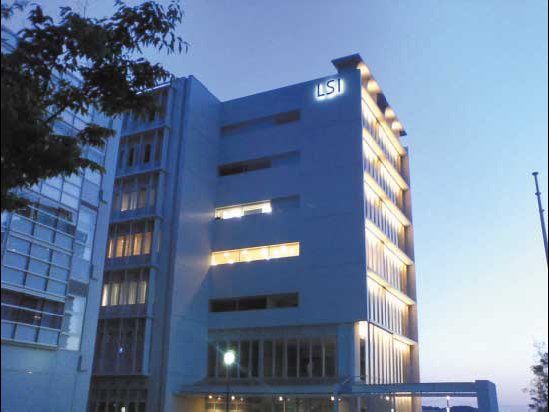 |
| Momochi-Hama Satellite campus System LSI Research Center |